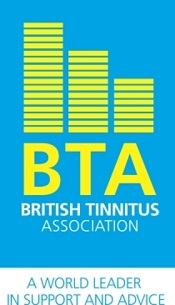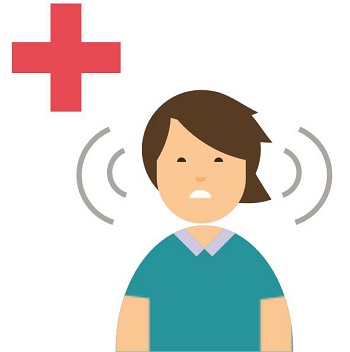 NAERUM, DK September 1 – A set of three new Tinnitus Management tools from the Ida Institute aim to help both patients and hearing care professionals manage the challenge of tinnitus, a condition that affects an estimate 10-15% of the adult population worldwide. Two tools, the Tinnitus Thermometer and the Tinnitus Communication Guide, are designed to help clinicians build their counseling skills and apply a holistic approach to care of patients with tinnitus. The Tinnitus First Aid Kid is an information hub, developed in partnership with the British Tinnitus Association, to empower patients to access the resources they need to understand, manage, and cope with tinnitus.
NAERUM, DK September 1 – A set of three new Tinnitus Management tools from the Ida Institute aim to help both patients and hearing care professionals manage the challenge of tinnitus, a condition that affects an estimate 10-15% of the adult population worldwide. Two tools, the Tinnitus Thermometer and the Tinnitus Communication Guide, are designed to help clinicians build their counseling skills and apply a holistic approach to care of patients with tinnitus. The Tinnitus First Aid Kid is an information hub, developed in partnership with the British Tinnitus Association, to empower patients to access the resources they need to understand, manage, and cope with tinnitus.
“Tinnitus can be a difficult topic for patients and hearing care professionals alike,” says Ida Institute Managing Director Lise Lotte Bundesen. “Through our Tinnitus Management tools, we want to help clinicians convey a message of hope and compassion that will build resilience in patients suffering with tinnitus. We also seek to empower patients by giving them access to a wealth of information about what they can do to help themselves and reduce the impact of tinnitus on everyday life.”
The Tinnitus Thermometer
The Tinnitus Thermometer tool employs a simple graphic to help patients “measure” or explain how they are experiencing tinnitus at the time of their appointment. The tool can be used at the start of every appointment to acknowledge both that patients themselves best know how they experience tinnitus and that patients might feel tinnitus and its effects differently from time to time. Three open-ended questions help structure the conversation, enabling clinicians to active listening and give patients space to express their feelings and thoughts on tinnitus. The Tinnitus Thermometer can also be used to track or monitor how patients progress over time and determine the rehabilitation strategies that are most effective for them.
 The Tinnitus Communication Guide
The Tinnitus Communication Guide
The way hearing care professionals talk about tinnitus can have a powerful impact on patients. Poor communication has the potential to make patients feel hopeless by the time they leave the appointment. The Tinnitus Communication Guide is designed to help hearing care professionals communicate effectively and compassionately about tinnitus with patients, in a way that comforts and encourages. A simple graph is used to illustrate that although tinnitus may always be present at more or less the same level of sound, the level of distress it causes and how intrusive it is will likely decrease significantly over time. This helps to make an important and encouraging point: Almost everyone with tinnitus finds it becomes more manageable and less intrusive over time. By sharing this information with patients early in their treatment, clinicians can help patients think about tinnitus in more constructive ways and positively impact how patients cope with tinnitus in the long term.
The Tinnitus Management tools for hearing care professionals also feature ethnographic videos that provide further very personal insights into the challenges faced by patients and clinicians in the treatment of tinnitus.
The Tinnitus First Aid Kit
The third tool in the Tinnitus Management tool set provides patients with an information hub where they can explore a wide range of resources to help them manage the impact of tinnitus on their day-to-day lives. At a time when patients are beginning their tinnitus journey, perhaps feeling alone and frightened, the Tinnitus First Aid Kit website (www.tinnituskit.com) offers reassurance and a safe space to gain knowledge and learn more about tinnitus. While not intended to replace professional advice, the website features a collection of practical, tried-and-tested methods to help patients cope with tinnitus - from relaxation techniques and basic sound therapy and advice on hearing loss and maintain physical and mental health.
The Tinnitus Management tool set is based on the knowledge and experience of 15 international specialists who participated in the Ida Tinnitus Innovation Challenge, held in Skodsborg, Denmark in December 2015. The three tools were developed from the collaboration of a multi-disciplinary team representing the US, Australia, UK, Germany, Italy, Switzerland, Denmark and Canada, the Ida Institute and the British Tinnitus Association.
The new Tinnitus Management tools for professionals, like all tools in Ida’s comprehensive tool box, are freely shared at www.idainstitute.com. The Tinnitus Tool Kit is offered in partnership with the British Tinnitus Association and is available free of charge at www.tinnituskit.com.

